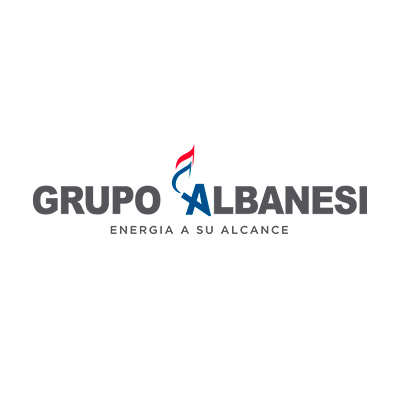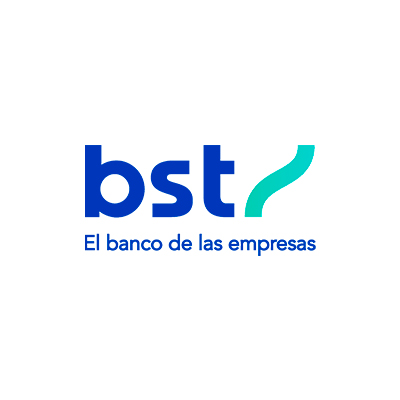Open Call for BESS and power generation “AlmaGBA”
On February 17, 2025, the Secretary of Energy published Resolution 67/2025 (“Resolution 67”), initiating the national and international open tender “Almacenamiento AlmaGBA” (the “Call for Bids”).
The Call for Bids is designed to incorporate new Battery Energy Storage System (“BESS”) generation power plants within the concession areas of the distribution companies Edenor and Edesur. The goal is to achieve a combined capacity of 500 MW, with an execution period of 12 to 18 months.
Preferred bidders will enter into a power storage and generation agreement (the “Storage-Generation PPA”) with Edenor and Edesur, with CAMMESA acting as a last-resort guarantor.
While the full details of the Storage-Generation Agreement are yet to be released, the main aspects of the Call for Bids are outlined below:
1. Scope of the Call for Bids
The Call for Bids seeks to enhance the reliability and supply conditions, within the Buenos Aires metropolitan area and the Wholesale Electricity Market (“WEM”), focusing on specific connection nodes (“CNs”), which are specified in the Call for Bids.
Bidders selected under the Call for Bids will enter into a Storage-Generation PPA, committing to energy supply and power availability for a minimum of four (4) consecutive hours per full discharge cycle. The term of the Storage-Generation PPA will be 15 years.
2. Minimum and maximum power capacity per project
The power capacity for each bid must range from a minimum of 10 MW to a maximum capacity, determined by the lesser of 150 MW or the capacity assigned to each CNs.
3. Storage-Generation PPA
Under the Storage-Generation PPA, Edenor or Edesur will be the principal obligors, whereas CAMMESA will serve as a last-resort guarantor. Should a payment default occur for two or more periods, CAMMESA may be required to pay the outstanding amonuts in lieu of Edenor or Edesur, as applicable.
CAMMESA’s guarantee will be capped at a maximum of twelve (12) consecutive months, equivalent to the remuneration under the Storage-Generation PPA.
The full terms of the Storage-Generation PPA will be published no later than March 31, 2025.
4. Call for Bids Schedule
- Consultation period: February 19 - May 4, 2025.
- Publication of the Storage-Generation PPA: March 31, 2025.
- Publication of responses to consultations: February 24 - May 11, 2025.
- Bids Submission deadline: May 19, 2025.
- Award date: June 27, 2025.
- Storage-Generation PPA signing date: June 30, 2025.
5. Bidders and offers requirements
Among the various requirements set forth in the Call for Bids, bidders are required to provide a bank guarantee of US$10,000 per MW as a bid bond.
**
For additional information, please contact Nicolás Eliaschev, Javier Constanzó, Daiana Perrone, Victoria Barrueco and/or Manuel Crespi.
Privatization of Belgrano Cargas y Logística S.A.
On February 10th, 2025, the National Government published Decree 67/2025 (“Decree 67”), authorizing the total privatization of Belgrano Cargas y Logística S.A. (“Belgrano Cargas”), according to the provisions of the Foundations Law.
Decree 67 orders the vertical disintegration and separation of the activities and assets of each business unit of Belgrano Cargas through the celebration of public works concession contracts for the railroad tracks and workshops, together with their adjacent properties, and the sale of the rolling stock through a public auction.
The Ministry of Economy, in cooperation with the Transformation of Public Enterprises Agency, is empowered to provide all the necessary regulations to carry out the procedure. It is also in charge of carrying out the biddings for the railways and workshops concession contracts celebration, the public auction for the sale of the rolling stock, and the dissolution of Belgrano Cargas.
***
For additional information, please contact Nicolás Eliaschev, Javier Constanzó, Juan Pablo Bove, Paula Cerizola, Florencia Martinez Trobbiani, Macarena Becerra, Rocío Valdez, Victoria Barrueco, and/or Manuel Crespi.
Legal Counsel to Banco CMF S.A. in the Issuance of Class 17 and Class 18 Notes for US$ 29,101,826

Legal counsel to Banco CMF S.A. in the issuance of Class 17 Notes, denominated, subscribed, and payable in U.S. Dollars in Argentina, at an interest rate of 4.50% maturing on August 6, 2025, for a total amount of US$ 19,376,200, and Class 18 Notes, denominated, subscribed, and payable in Argentine Pesos, at a variable interest rate (“TAMAR Privada”) plus a margin of 3.25% maturing on February 6, 2026, for a total nominal value of AR$ 10,250,000,000, under the Global Notes Program for an amount of up to US$100,000,000 (or its equivalent in other currencies or units of measure or value).
Grupo Albanesi Secures a US$ 80,000,000 Loan for the Refinancing of Certain short-term Liabilities due 2025

Counsel to Grupo Albanesi (Generación Mediterránea S.A., Central Térmica Roca S.A. y Albanesi Energía S.A.) in the granting of a syndicated loan for a committed amount of US$ 59,000,000 and a máximum amount of US$ 80,000,000 (the “Loan”) by Banco Hipotecario S.A., Banco de Galicia y Buenos Aires S.A.U. (the “Arrangers”), Banco Supervielle S.A., Banco Santander Argentina S.A., Banco de la Provincia de Córdoba S.A., Banco de la Ciudad de Buenos Aires, Banco de Servicios y Transacciones S.A., and Banco de la Provincia de Buenos Aires (collectively with the Arrangers, the “Lenders”), for the refinancing of certain short-term liabilities due 2025.
The Loan, entered into on January 21, 2024, was partially disbursed by the Lenders on the such date, and the funds were successfully applied to the repayment of the certain short-term liabilities due 2025.
The Loan has a grace period of 24 months, matures in 2028, and is secured by a fiduciary assignment of its collection rights under certain PPAs (Power Purchase Agreements) of Generación Mediterránea S.A. and Central Térmica Roca S.A.
Consequently, Grupo Albanesi secured the necessary funding to refinance certain short-term liabilities and continues its process of improving its long-term debt profile and strengthening its financial position.
Legal Advice in Petrolera Aconcagua Energía S.A.’s Notes Issuance


Counsel in the issuance of Petrolera Aconcagua Energía S.A.’s Class XVII simple notes for a total amount of USD 29,244,801 (twenty-nine million two hundred forty-four thousand eight hundred one U.S. Dollars) denominated and payable in U.S. Dollars, at a fixed interest rate of 9.00% nominal annual rate, maturing on January 30, 2028, under its Global Notes Program (not convertible into shares), for up to a maximum amount of U.S. Dollars 500,000,000 (or its equivalent in other currencies or units of value)
Banco de Servicios y Transacciones S.A., acted as arranger, settlement agent and placement agent of the Notes, Banco Santander Argentina S.A. and Puente Hnos S.A. acted as arrangers and placement agents of the Notes; and Banco de Galicia y Buenos Aires S.A.U., Banco Mariva S.A., Allaria S.A., SBS Trading S.A., Banco de la Provincia de Buenos Aires, Banco Supervielle S.A., Invertironline S.A.U., BACS Banco de Crédito y Securitización, Cohen S.A., Industrial Valores S.A., Mills Capital Markets S.A., NEIX S.A., PP Inversiones S.A., Latin Securities S.A, Option Securities S.A. and Banco Patagonia S.A. acted as placement agents of the Notes.
Normalization of the Wholesale Electricity Market
On January 29, 2025, CAMMESA published on its website complementary information to Resolution 21/2025 of the Secretary of Energy (“SE”) (the “Resolution 21”) (Available comments on this regulation here).
Among the published documentation, there is a note sent by the SE to CAMMESA (the “SE Note”) outlining the need for gradual normalization to encourage investment and reliability of the Wholesale Electricity Market (“WEM”).
Attached to the SE Note are the Guidelines for the Normalization of the WEM and its Progressive Adaptation (the “Guidelines”) prepared by the SE, which detail the modifications in fuel management, demand in the WEM, determination of prices and operation of both the Corporate PPA Market (“MAT”) and the Spot Market.
Additionally, the SE enclosed a Technical Report on the WEM situation (the “Technical Report”). This Technical Report analyzes regulatory and operational aspects to meet regulatory objectives, focusing on system transparency and efficiency, decentralization of CAMMESA, energy prices, fuel management review, Spot Market and MAT mechanisms adaptation, and infrastructure planning.
Associations represented in CAMMESA have thirty (30) days from January 30, 2025, to provide non-binding opinions on these documents for the WEM normalization process. At the same time, CAMMESA will have forty-five (45) days to prepare: a) a detailed report with a dispatch and transactional management plan; b) an analysis of the impact of the measures on the supply and demand of the WEM, and c) a report on the considerations of the WEM Associations.
Finally, the SE announced the issuance of new regulations for the normalization of the WEM to be effective as of November 1, 2025, regardless of the possible anticipated measures to eliminate restrictions.
***
For additional information, please contact Nicolás Eliaschev, Javier Constanzó, Daiana Perrone, Victoria Barrueco and/or Manuel Crespi.
Deregulation of Electric and Hybrid Electric Vehicles Charging Activity
On January 29, 2025, the Secretary of Energy published Resolution 22/2025, abrogating Resolution 817/2023 (the “Resolution 817”).
Resolution 817 had created the National Registry of Charging Infrastructure for Electric Vehicles (“EV”) and Hybrid Electric Vehicles (“HEV”) and imposed the obligation to charge such vehicles exclusively at service stations.
In line with the state reorganization principles set forth in the Foundations Law the elimination of Resolution 817 deregulates the EV and HEV charging activity, allowing any establishment to provide such services.
***
For additional information, please contact Nicolás Eliaschev, Javier Constanzó, Daiana Perrone, Victoria Barrueco, and/or Giuliana Manzolido.
New measures for the normalization of the Electricity Market
On January 28, 2025, the Secretary of Energy published Resolution 21/2025 (“Resolution 21”), which introduces the following key changes in the wholesale electricity market:
- Corporate PPA Market: Partially reinstates the Corporate PPA Market (“MAT”, or Mercado a Término) for thermal, hydroelectric and nuclear power plants with commercial date achieved after January 1st, 2025.
- Fuel management for Thermal Generators: As of March 1st, 2025, thermal generators operating in the Spot market (those without a PPA) will be allowed to manage their own fuel. The costs will be valued based on the reference price according to the variable production costs submitted, including transport and distribution costs, taxes and associated fees. CAMMESA will remain as the last-resort supplier, as well as the supplier of fuel for thermal generation PPAs.
- Phasing out the “Energy Plus” Regime: As of October 31st, 2025, the “Energy Plus” regime will be abrogated, although existing contracts will remain valid until their specified termination dates.
Resolution 21 is an initial but significant step in the National Government’s ongoing efforts to normalize the wholesale electricity market in a direction that fosters competition and private investment. As a result, additional and supplementary regulations are expected to be adopted in the short to medium term.
***
For additional information, please contact Nicolás Eliaschev, Javier Constanzó, Daiana Perrone, Victoria Barrueco, or Manuel Crespi.
MSU Energy Secures a US$ 222,000,000 Loan for the Refinancing of its International Notes due 2025
 Counsel to MSU Energy S.A. in the granting of a syndicated loan of US$ 222,000,000 (the “Loan”) by Industrial and Commercial Bank of China (Argentina) S.A.U., Banco de Galicia y Buenos Aires S.A.U., and Banco Santander Argentina S.A. (the “Arrangers”), together with Banco BBVA Argentina S.A., Banco Hipotecario S.A., Banco de la Nación Argentina, Banco de la Ciudad de Buenos Aires, Banco de Valores S.A., and Banco de la Provincia de Buenos Aires (collectively with the Arrangers, the “Lenders”), for the refinancing of its international notes due 2025.
Counsel to MSU Energy S.A. in the granting of a syndicated loan of US$ 222,000,000 (the “Loan”) by Industrial and Commercial Bank of China (Argentina) S.A.U., Banco de Galicia y Buenos Aires S.A.U., and Banco Santander Argentina S.A. (the “Arrangers”), together with Banco BBVA Argentina S.A., Banco Hipotecario S.A., Banco de la Nación Argentina, Banco de la Ciudad de Buenos Aires, Banco de Valores S.A., and Banco de la Provincia de Buenos Aires (collectively with the Arrangers, the “Lenders”), for the refinancing of its international notes due 2025.
The Loan, entered into on November 7, 2024, was disbursed by the Lenders on December 23, 2024, and the funds were successfully applied to the redemption of the portion of MSU Energy S.A.’s bonds not voluntarily exchanged for New Notes, maturing 2025 with an interest rate of 6.875% for an aggregate amount of US$ 600,000,000 (the “2025 Notes”).
Simultaneously, we advised MSU Energy S.A. in the issuance of a secured international bond at a 9.750% interest rate, maturing 2030, for an aggregate amount of US$ 400,000,000 (the “New Notes”), which consisted of (a) an exchange offer of the 2025 Notes, which were voluntarily tendered in exchange for New Notes for an aggregate principal amount of US$223,352,460 (the “Exchange Offer”); and (b) the issuance of additional New Notes for an aggregate principal amount of US$ 176,647,540 (the “New Money Issuance”).
The US$ 222,000,000 Loan, together with the New Money Issuance, were applied to the redemption of such nominal amounts of 2025 Notes not validly tendered and accepted for exchange pursuant to the Exchange Offer.
Consequently, MSU Energy S.A. secured the necessary funding to refinance the entirety of its 2025 Notes and completed its complex refinancing process, significantly enhancing its long-term debt profile and strengthening its financial position for future growth.
Legal Counsel to Banco CMF S.A. in the Issuance of Series 16 Notes for US$ 20,000,000

Legal counsel to Banco CMF S.A. as issuer, placement agent and settlement agent in the issuance of its Series 16 floating rate Notes for US$ 20,000,000 due June 20, 2025. The Series 16 Notes were issued on December 20, 2024 under the Global Notes Program for an amount of up to US$100,000,000.



